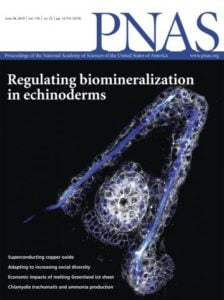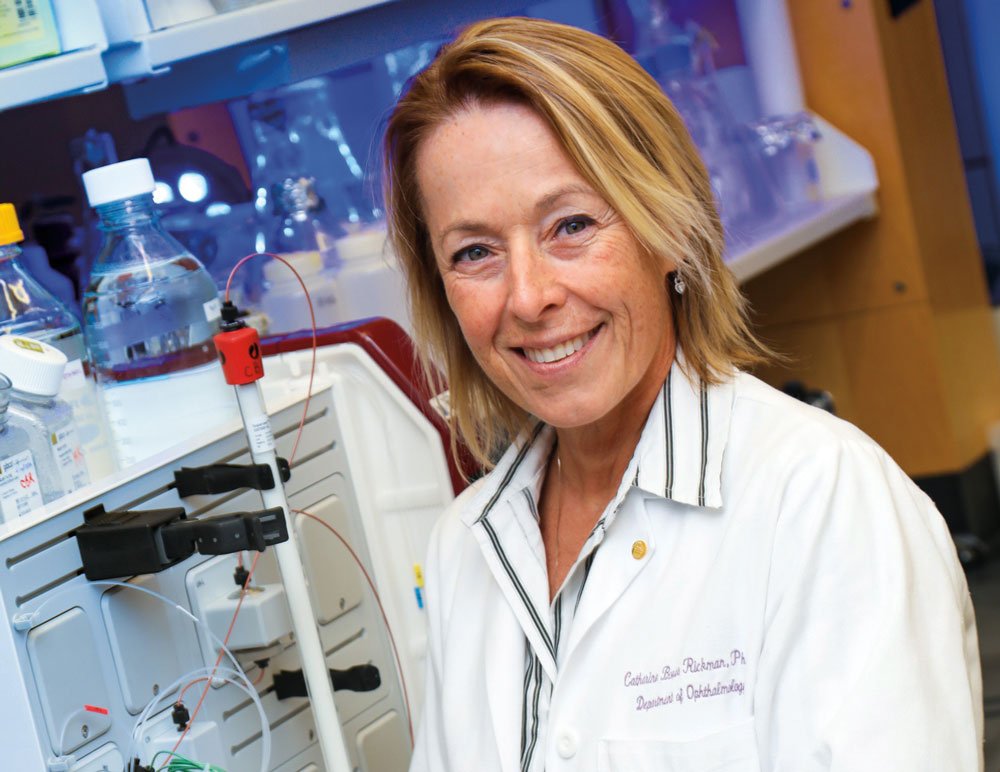 Human complement factor H Y402H polymorphism causes an age-related macular degeneration phenotype and lipoprotein dysregulation in mice. Michael Landowski, Una Kelly, Mikael Klingeborn, Marybeth Groelle, Jin-Dong Ding, Daniel Grigsby and Catherine Bowes Rickman.
Human complement factor H Y402H polymorphism causes an age-related macular degeneration phenotype and lipoprotein dysregulation in mice. Michael Landowski, Una Kelly, Mikael Klingeborn, Marybeth Groelle, Jin-Dong Ding, Daniel Grigsby and Catherine Bowes Rickman.
PNAS February 26, 2019 116 (9) 3703-3711. To read the entire article CLICK HERE.
This study was conducted with IRRF support through an RPB/IRRF Catalyst Award for Innovative Research.
SIGNIFICANCE: The complement factor H (CFH) Y402H polymorphism (rs1061170) imparts the strongest risk for age-related macular degeneration (AMD), the leading cause of blindness in the elderly. Popular thinking holds that the CFH H402 variant increases complement activation in the eye, predisposing susceptibility to disease. However, clinical trials of complement inhibitors in AMD patients have failed. This study provides an explanation showing CFH variant-specific differences in the presentation of AMD-like pathologies. The study also shows that aged mice expressing the human H402, but not Y402 variant, (i) develop AMD-like symptoms and (ii) display differences in their systemic and ocular lipoprotein levels, but not in their complement activation, after diet. These findings support targeting lipoproteins for the treatment of AMD.
A Professor of Ophthalmology and Associate Professor in Cell Biology with tenure at Duke University School of Medicine, Dr. Bowes Rickman is currently receiving funds as a recipient of a Research to Prevent Blindness (RPB)/International Retinal Research Foundation (IRRF) Catalyst Award for Innovative Research Approaches for AMD. The RPB/IRRF Catalyst Awards provide seed money for high-risk/high-gain vision science research, which is innovative, cutting-edge and demonstrates out-of-the box thinking. Research related to both dry and wet forms of AMD are supported by this award.
Dr. Bowes Rickman’s current studies involve the molecular mechanisms underlying the development of age-related macular degeneration, with a focus on development and studies of animal models of AMD, AMD pathogenesis and pre-clinical studies of novel therapies for AMD, and she has a strong track record of productive research in this field.



